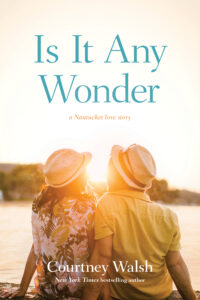By Courtney Walsh, @courtney_walsh

The world is loud. The whole world. Which means, the writing world is loud too. There is a ton of advice out there for a new writer—so much so that it can be overwhelming to know where to begin.
Before I ever wrote my first novel, I remember poring over blog posts by authors who’d done it—simply trying to learn their process and convinced that I could replicate it.
But I quickly learned that not all advice was for me.
Being a rule follower, this lesson took time to sink in. After all, if a teacher said something, it must be true. So, I’d sit in sessions at conferences, furiously taking notes, only to discover that not all rules are hard and fast. And some are even better when broken.
So, how do you know what advice to hold onto and what to let go of?
- Know Yourself. This one may take a bit of time, but the more confident you are in yourself, the easier it will be to know if advice is for you or not. For instance, I’ve read many articles and listened to many podcasts about plotting, but try as I may, none of it has ever stuck. I’ve simply never been able to make plotting work for me. There’s something about it that stunts my creative process. It took a little trial and error to realize this, but now that I know it, I can disregard “how to” plotting articles and advice about plotting. The more you know how your creativity works, the more confident you’ll be when you say, “This advice simply isn’t for me.”
- Step into your writing journey with a very clear goal. Defining your writing goal will make it easier to discard advice that doesn’t serve that goal. For instance, if your goal is to be very prolific and make as much money as possible, advice about writing quickly and producing a high volume of content is going to resonate with you. However, if your goal is simply to enjoy the journey of writing while maintaining a balanced work/family life, you know you can discard any advice that’s geared toward productivity. Not because it’s bad advice, but because it doesn’t serve your personal goal.

- Give yourself permission to try different things. And also permission to decide it’s not for you. Maybe you don’t know yet if something is going to work for you. Are you a “write every day” kind of writer or a “write in big chunks on the weekends only” kind of author? You have to remember that your life has different challenges than someone else’s. An author with three small kids at home will have a different process than one who is an empty nester. And both of those authors have different circumstances than an author with a full-time job. Try on different ideas, but if they frustrate you, then be okay letting it go. It could be great advice. . .for someone else.
- Ask around. Authors are by far the most generous people I know. If you’re chewing on something you’ve learned, or trying to determine what part of your process isn’t working—find a few more authors and pick their brains. Maybe you’ve been led to believe that if you don’t write and rapid release five books a year, you’ll never be successful. But many successful authors I know release one book a year, and this allows for more margin in their lives. As you wrestle with your goals, do a little extra research. Have conversations. Be a student. You’ll soon realize that there are as many ways to write a book and have a writing career as there are people in the world.
And you’ll also realize that they’re all “right.” And they’re all “good.” You just need to determine how to land on the one that suits you and your goals best.
Most importantly, if you try something and it doesn’t work, don’t be afraid to keep trying. Keep throwing noodles at the wall until you find the one that sticks.
It’s worth it to see your stories in print, to hold your book in your hands. And once you figure out your best process for writing a novel, you can begin to share that advice with someone else. Who knows? It might be exactly the wisdom they need to keep moving forward!

Twelve years ago, Cody Boggs and Louisa Chambers made a pact that no matter where their lives took them, they’d return to Nantucket Island’s Brant Point Lighthouse on July 30, their shared golden birthday, and continue their tradition of exchanging birthday wishes. But that was before a tragic accident upended both of their lives, irrevocably pulling them apart.
Their worlds collide just months before that particular day when Louisa’s fledgling event planning company is hired by the local Coast Guard station, where she discovers Cody has recently returned to the island as the second in command. As they plan a regatta fundraiser, hoping to promote positive PR in the community, neither can deny the fireworks each encounter ignites. But working together also brings up memories of the day Cody’s father died, revealing secrets that have Cody and Louisa questioning everything they thought they knew and felt about their families and each other.

Courtney Walsh is a New York Times and USA Today best-selling author. She writes small town romance and romantic women’s fiction while juggling the performing arts studio and youth theatre she owns and runs with her husband. Courtney is a Carol award winner and Christy Award finalist who has written thirteen novels, two craft books and several full-length musicals. She lives in Illinois with her husband and three children and a sometimes naughty Bernedoodle named Luna.
